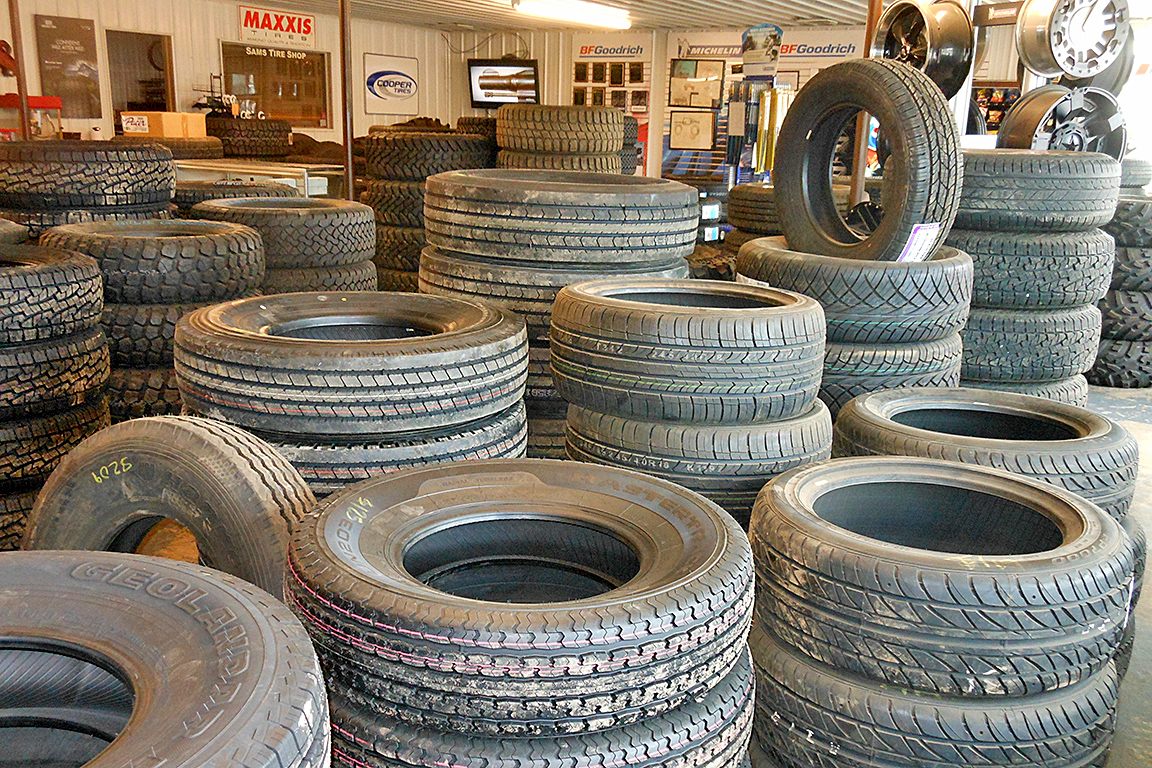The Environmental Benefits of Correct Tire Maintenance
Maintaining appropriate tire care is commonly neglected, yet its impact on the setting is extensive. Correct tire upkeep not only expands the life expectancy of tires yet also reduces land fill waste and adds to improved air top quality.
Lowered Fuel Consumption
Improving tire maintenance methods can lead to a significant reduction in fuel usage for vehicles. According to the United State Department of Energy, underinflated tires can reduce gas mileage by 0.2% for every 1 psi drop in pressure in all 4 tires.
Along with tire pressure, regular tire turnings and positionings also play a critical role in gas performance. Erratically worn tires can increase gas usage as the engine works harder to keep speed and grip. By keeping appropriate placement and revolving tires at suggested intervals, drivers can make sure also lengthen the life and put on of their tires, ultimately conserving fuel and minimizing their carbon footprint.
Extended Tire Lifespan
Extending the life-span of tires is a crucial element of effective automobile upkeep methods that can yield price financial savings and environmental benefits over time. By effectively keeping tires, motorists can dramatically prolong their functionality, lowering the regularity at which new tires need to be made and old ones disposed of. This not only saves beneficial resources yet also reduces the energy and exhausts related to tire production and disposal procedures.
Frequently examining tire stress, rotating tires, and ensuring appropriate alignment are important actions in prolonging tire life-span. Sufficient step deepness is crucial for optimum grip and safety and security, however it likewise plays a duty in the length of time tires can be utilized prior to requiring replacement. In addition, staying clear of aggressive driving habits that accelerate tire wear, such as extreme braking and doglegs, can better improve tire resilience.
Inevitably, boosting the longevity of tires with positive maintenance not just benefits the setting by reducing waste and saving sources yet likewise brings about set you back financial savings for automobile owners by delaying the demand for new tire purchases.
Reduced Discharges Outcome
Reliable tire upkeep methods add to a reduction in discharges output, lining up with ecological sustainability objectives in the automotive sector. Appropriately inflated tires, on a regular basis turned and aligned, can boost fuel effectiveness, therefore decreasing the total co2 exhausts from vehicles. When tires are underinflated, the engine needs to work more challenging to move the automobile, causing boosted fuel intake and greater discharges. By preserving this contact form optimum tire pressure degrees, chauffeurs can help minimize these adverse ecological impacts.
Furthermore, properly maintained tires likewise enhance traction and lower rolling resistance, even more enhancing gas performance. This, consequently, decreases the quantity of exhaust gases released into the ambience. Additionally, ensuring tires are properly inflated and aligned can prolong the lifespan of the tires, decreasing the regularity of tire replacements and the associated ecological expenses of tire production and disposal.

Decreased Land Fill Waste
Provided the positive influence of proper tire upkeep on reducing discharges output, another significant ecological benefit is the possibility for reduced garbage dump waste. By making certain that tires are effectively blown up, lined up, balanced, and rotated regularly, their life expectancy can be significantly prolonged.

Improved Air Quality
Enhancing air high quality via appropriate tire maintenance techniques is a critical aspect of this website sustainable environmental stewardship. When tires are underinflated, they produce more rolling resistance, resulting in raised fuel consumption and higher discharges of damaging contaminants such as carbon monoxide gas and nitrogen oxides. Effectively inflated tires not only improve gas efficiency however also lower the quantity of toxins released right into the air.
In addition, well-kept tires with appropriate tread deepness and alignment add to more secure motoring conditions, reducing the probability of mishaps that can lead to the release of extra pollutants right into the environment. By expanding the lifespan of tires through normal upkeep and turning, fewer tires are disposed of too soon, decreasing the ecological influence of tire disposal and manufacturing processes.
Verdict
In conclusion, proper tire maintenance supplies numerous ecological advantages. By minimizing fuel intake, expanding tire lifespan, decreasing discharges result, decreasing garbage dump waste, and boosting air quality, individuals can add to a much healthier world. These initiatives not only profit the atmosphere but also help to save sources and lower overall environmental effect. It is essential for people to focus on tire upkeep as a straightforward yet reliable means to secure the environment for future generations.
Proper tire upkeep not just extends the lifespan of tires but likewise reduces garbage dump waste click this and contributes to improved air quality - tire tracks morris il. By maintaining correct alignment and turning tires at suggested intervals, motorists can make sure also wear and extend the life of their tires, inevitably saving gas and decreasing their carbon footprint
By correctly preserving tires, chauffeurs can significantly prolong their functionality, lowering the regularity at which new tires require to be made and old ones disposed of.Frequently examining tire stress, turning tires, and guaranteeing proper placement are necessary actions in expanding tire life-span. Additionally, ensuring tires are effectively blown up and straightened can extend the lifespan of the tires, reducing the regularity of tire substitutes and the linked ecological costs of tire production and disposal.